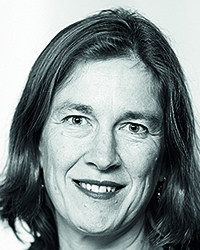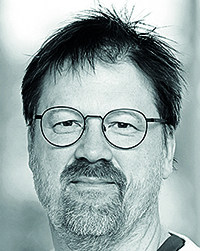“In an unstructured environment, those who like to be heard will take up much more space,” says Klara Bolander Laksov, a professor of higher education at Stockholm University. “That can lead you to think that the other participants have nothing to say. I think that is a problem.”

Klara Bolander Laksovn
Professor of higher education at Stockholm University
She says that a seminar is one of the few occasions when students have the opportunity to process information in the presence of their teacher, and that it is therefore important to help all students to be active. “I usually say that information times processing equals knowledge. If you only allow some students to process in the seminar, the others are left to process by themselves, which not everyone is able do.”
A good start to make it easier for participants who are more thoughtful and reflective is to make sure early on that everyone in the room has a chance to speak. For example by letting everyone introduce themselves. “You need to gently get the students to speak so that they feel secure. Some may only feel comfortable when they have spoken two or three times.”
Another trick is to let the students air their thoughts in a smaller context before speaking to the whole group – either in pairs or in small groups. “You can let them explain to the person sitting next to them what they think about the material. Then you ask people to report back what the person next to them thinks.”
Someone who almost always lets the students discuss in small groups in his seminars is Hans Färnlöf, who has 25 years of teaching experience and is a professor of French at Stockholm University.
“While they’re talking in the groups, I go around listening and then we all have a discussion in the full group,” he explains. “It’s easier to talk in a large group if you’ve been able to test your idea first. And I can pick up and highlight ideas that I have heard in the smaller groups, especially for students who do not take up much airtime.”

Hans Färnlöf
French at Stockholm University
Another thing Färnlöf often does is to mix planned exercises with unplanned ones. Having first said something they have prepared makes it easier for people to be active in the unprepared exercises, he believes. “There’s a lot of psychology in having the courage to speak, especially in a foreign language.”
But creating a more equal speaking environment involves much more than just helping quiet students to have their voices heard.
It’s just as much about the talkative students. “Those who talk a lot are often quite unaware that they are taking over. They may find silence more difficult and awkward and therefore feel forced to talk,” says Bolander Laksov.
To avoid this, seminars need to be structured and have clear frameworks, she believes, and gives a useful tip, inspired by the dialogue seminar method. “You can ask the students to write short texts about what they read before the seminar. At the seminar, everyone reads their text aloud. Then, for example, you get three other participants to comment and then the next person reads.”
In this way, speaking time is allocated evenly and people listen to each other. If you are going to meet a group many times, you can do this the first few times to create a positive dynamic, she suggests.
Something you have to be wary of as a teacher is explaining too much yourself, says Bolander Laksov, and adds that it is easy to be tricked into this because the students like to be given the answers.
Hans Färnlöf also thinks that it is important to explain why participants should be active and to have a permissive attitude.
One thing he usually talks to his students about is what it means to say something wrong. “I usually say that you can make as many mistakes as you like in the lessons. It’s the exam or the assignment that determines your grade, and it’s almost impossible to learn anything without making mistakes.”
Tips for a creating a more equal speaking environment
- Let everyone in the room have a chance to speak early on, for example with a round of introductions.
- Start in small groups or pairs. It will then be easier for people to speak in a large group.
- Provide clear frameworks. For example, try getting everyone to prepare a text that they then read aloud.
- Tell the participants about the purpose. Why is it important to be active?
- Consider your attitude. Show people that it is okay to make mistakes and give lots of praise and encouragement.
- Don’t take over yourself. A seminar is not a lecture.
- Think outside the box. Why not build or draw something to aid understanding?
Source: Klara Bolander Laksov and Hans Färnlöf















